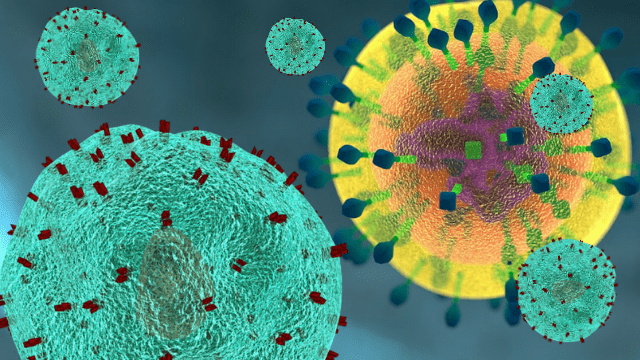Your immune system is something that is taken for granted, with little or no thought to how to keep it healthy, or even to the question of what is your immune system?
For example do you know that you have two immune systems? And that, truth be told, much of your immune system is in your digestive system? Thought not.
Firstly, the point about two immune systems, there really are two; there is the innate immune system and an adaptive one. The innate can be seen as a broad spectrum response and can be thought of more as your body just fighting with whatever is at hand.
There is no ‘cleverness’ there. On the other hand the adaptive immune system is one that is only found in vertebrates and has the ability to learn from the pathogen, so that an infection of similar nature is dealt with much quicker and easier.
Interestingly, for the adaptive immune system to work, it has to have the concept of ‘self.’ It knows what should be there and what shouldn’t, which really takes the concept of ‘self-awareness’ to a whole new level.
Upon conception, that tiny little embryo doesn’t have really have an immune system to speak of. While there is the innate response capability, it isn’t very effective. The rest of the immune system is the cleanest sheet of paper in the human body.
Everything else is inherited: your eye colour, your body disposition; but your immune system doesn’t really exist, well not yet anyway.
While the embryo is gestating, the mother provides a layer of protection that continues to provide assistance for a period post-pregnancy, but it is only upon birth, that things get interesting.
As soon a baby is born, it is exposed to a barrage of bacteria which starts to colonise the gut.
Where this comes from differs on the method of birth; if it is a vaginal birth, then a large proportion is from the mother, if by caesarean section then it is more from the surrounding environment.[1]
The method of birth also changes the rate of gut flora establishment, with a vaginal birth causing establishment much quicker than by caesarean.
Which neatly leads me on to another major point around the immune system, and that it is heavily based in the digestive system. On first blush, this doesn’t really make a lot of sense. How can bacteria in the gut stop infections?
Surely, this is just, well bacteria, and a fair proportion of the time it is a bacterial infection that is the problem. To understand how this works, you need to understand how the gut works.
While it is possible to live without such flora, they do such wonderful things. It would be very difficult as many forms of carbohydrate cannot be digested without such bacteria.
And it is this plethora of friendly bacteria that comes in useful; not only does the good bacteria colonise the surfaces of the gut, and thus stopping the harmful bacteria taking root, they also stimulate the immune system in the gut helping it to recognise harmful pathogens much quicker.
Hence why you will see many statements on the gut containing a high percentage of your immune system.
Of course, all this is well and good if you are leading a healthy, stress free life. But really, who does that these days. Stress, lack of sleep, poor diet, alcohol and antibiotics all contribute to a depleted immune system, which means you are far more likely to get sick than if you just took care of yourself.
Hopefully the rest of this edition of Holistic Living Magazine will help you have that healthy ‘self’ and not have to call on that immune system that you’ve been taking for granted for so long.
You can read the FULL version of this magazine in our quarterly eZine, ‘Holistic Living Magazine,’ look for Edition 5 on this archive page. There’s many more articles about the immune system waiting for you too!
Cassandra Jones – Editor At Large For Holistic Living Magazine







